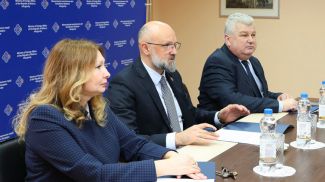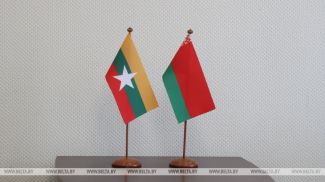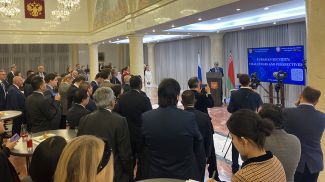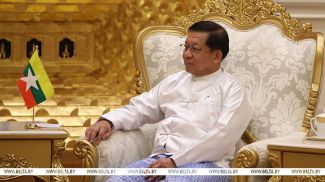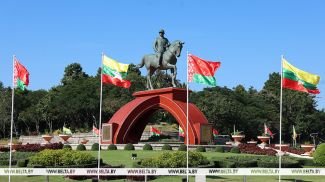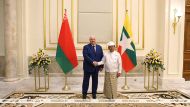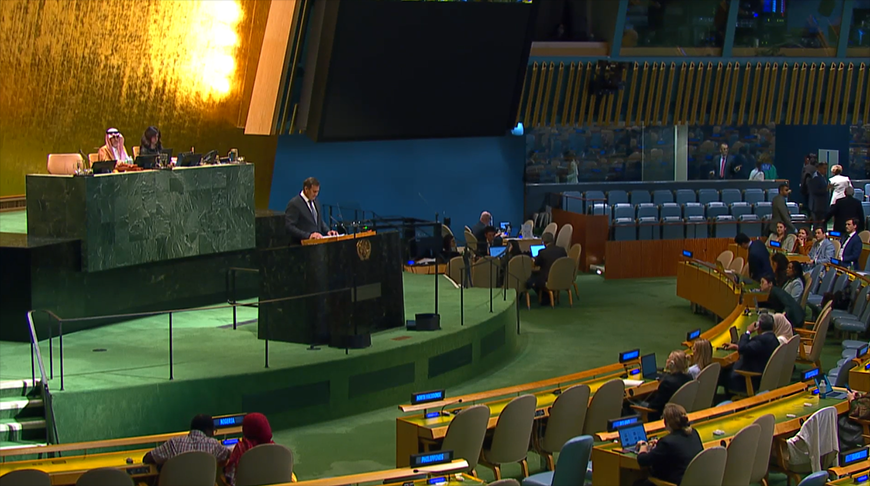
MINSK, 27 September (BelTA) - The times of Western diktat are gone, and Europeans should reflect on their place in the world, Belarusian Minister of Foreign Affairs Maxim Ryzhenkov said as he addressed the plenary meeting of the 80th session of the UN General Assembly in New York on 27 September, BelTA has learned.
Maxim Ryzhenkov recalled the Belarusian initiative to develop a Eurasian Charter for Multipolarity and Diversity in the 21st Century. It is designed to launch a new paradigm for a Eurasian architecture of equal and indivisible security.

"We call on all Eurasian states to join the process and demonstrate the same level of responsibility as our predecessors did half a century ago. There is no alternative to such a dialogue. We need to abandon the prejudices and come to the negotiating table. Our call is certainly also directed at the countries of the European Union, which are traditionally skeptical of any initiatives originating from the East. But I would like to remind you: this East is far from the one that existed even a decade ago. It is, in essence, the Global South or even the Global Majority, which must be reckoned with. It is high time to finally understand: the times of diktat by the collective West are gone,” the minister stated.
According to him, Europeans should reflect on their place in the world in light of the ongoing transformations, which are not working to their benefit.
“Declining economic competitiveness is undermining the traditional European model of the welfare state, leading to a fall in living standards and a rise in inequality. Rampant militarization of the region is driving Europe, particularly new EU and NATO member states, into a deep financial abyss. The civilizational foundations of European society are rapidly eroding due to practically uncontrolled mass migration and a failed policy of faux multiculturalism as a response to this challenge. And all of this is happening against the backdrop of new barriers being hastily erected in the eastern direction. And these are no longer concrete barriers, but political, ideological, interpersonal, and in essence, civilizational ones,” the diplomat said.
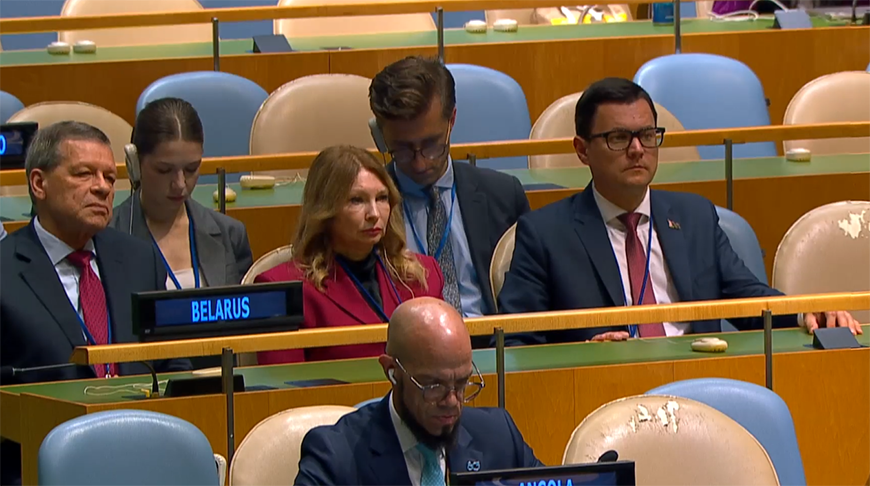
“And what lies beyond this fence, here to the East? It is not only Belarus and Russia today. Stretching all the way to the Pacific horizon and to the Indian Ocean, a community of shared destiny and shared responsibility for the future of humanity, as our Chinese friends say, is taking shape. This involves the weakening of customs and physical borders, enhanced cooperation across the full spectrum of pressing issues, the development of interpersonal contacts, and multifaceted interaction. A community where, despite numerous cultural and national differences, members respect one another, without imposing ideological dogmas or rules of conduct. And it is already billions of people, millions of square kilometers of territory, a powerful and rapidly growing economy, and the most advanced technologies (that are its own). It has everything. And, incidentally, it has its own modern mechanisms of interaction: BRICS, the Shanghai Cooperation Organization, ASEAN, the African Union, the Arab League,” Maxim Ryzhenkov said.
Screengrab/un.org





